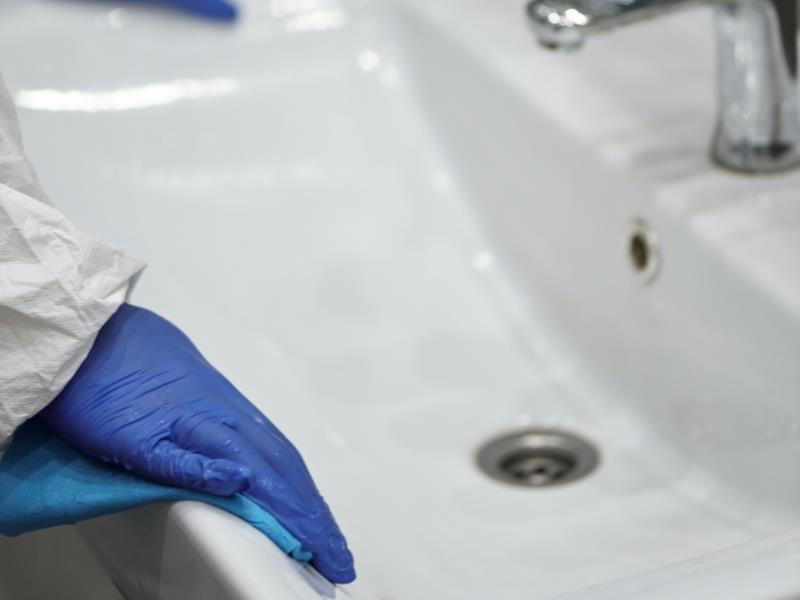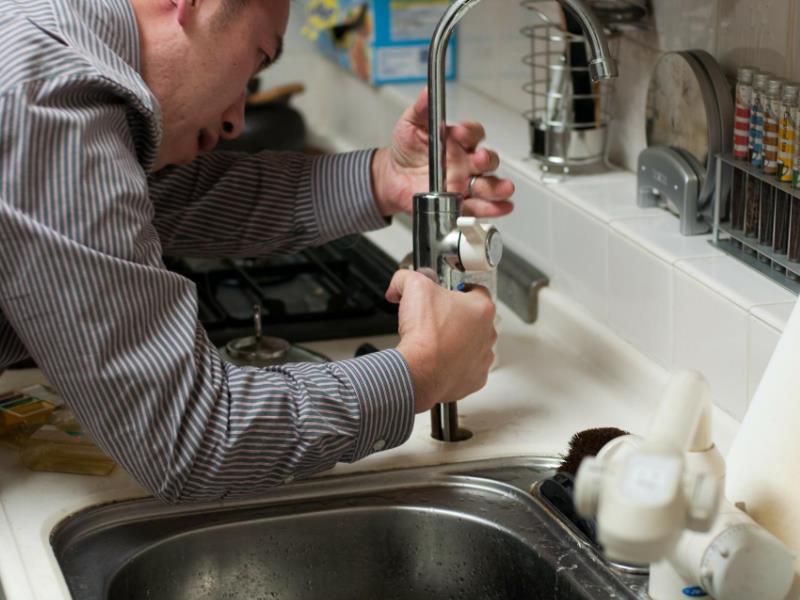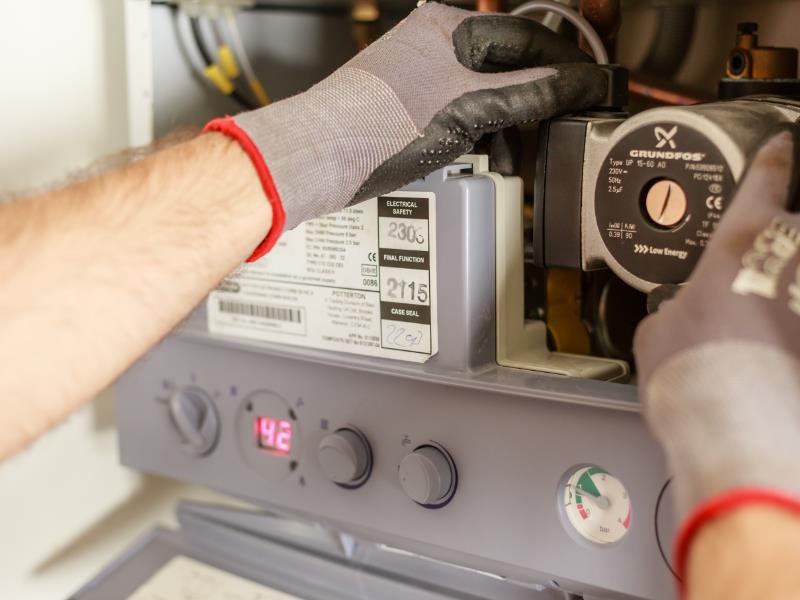Plumbing Regulations
Home / Wiki / Plumbing RegulationsLast updated Wed 20 Apr 2022
In Queensland, there are a series of laws and regulations that govern how plumbing is installed and maintained. These regulations are committed into law by the Queensland Government via the same methods as other laws, and they impact anyone that interacts with plumbing, including plumbers, householders, and builders. Currently, there are three sets of laws and regulations that are in effect in relation to plumbing, with each impacting different areas of the field.

Some plumbing regulations can dictate that safety equipment be worn during work.
Plumbing Standards
Before one can understand the various plumbing legislature, it is important to note that these Acts and Regulations work in tandem with the standards imposed by the Plumbing Code of Australia. The Plumbing Code of Australia is maintained by the Australian Building Codes Board, which is a joint body of both the federal government and the state and territory governments.
The Plumbing Code of Australia details the technical standards that plumbers must conform to. These include things such as the application of backflow devices, the depth at which pipes must be buried, and the quality of materials that should be used, amongst other things.
Plumbing and Drainage Act 2018
The Plumbing and Drainage Act 2018 currently provides the majority of the regulations for the plumbing industry in Queensland. For instance, a major part of this Act relates to the licensing requirements for plumbers, detailing the work that can be performed by each class of license, as well as the qualifications required to acquire new licenses. Part 2 of the Act, which contains all of the legislature related to licensing, contains ten individual segments, each of which targets a specific aspect of plumbing licensing, such as granting licenses, the schedule for audit programs, and a segment that outlines the disciplinary action that plumbers may face under the authority of this Act.
Another notable section of the Act details the punishable offences that may be committed by individuals, which includes a segment thoroughly outlining the various ways in which work would be considered to be completed without an appropriate license. It also includes a segment outlining work that cannot be altered or removed without a license, including backflow prevention devices and temperature control devices. These examples relate to work that some homeowners may believe they can perform themselves, though, as outlined in this Act, it would be illegal to do so.

Other times, no equipment may be necessary, and the work can be done by hand.
Plumbing and Drainage Regulation 2019
While the Plumbing and Drainage Act 2018 is a broad-scope set of laws pertaining to plumbing, the Plumbing and Drainage Regulation 2019 was implemented to help specify further laws around the existing plumbing codes.
For instance, Part 3 of the Regulation is another set of laws surrounding plumbing licensing, but it is specifically pertaining only to the outlining of the scope of work completable by each license class as well as the guidelines for determining alternative qualifications to those presented in the previous Act.
The Regulation also contains a part specifying the laws surrounding treatment plant approvals and all related materials, which provides clear state-level guidelines on the processes necessary to gain approval for the construction of a new wastewater treatment plant and the requirements to keeping that treatment plant operational. This includes the application process, inspections, the duration of approval periods, and the conditions under which existing approvals may be cancelled.
There is another part for the distribution of permits, and another that exclusively outlines the legal processes by which a register of permits, inspections, and other required information will be kept. These new laws help complement the existing content of the Plumbing and Drainage Act 2018, and between the two, anyone working in the field of plumbing should be able to find a law relevant to whatever task it is they would like to undertake.
Queensland Plumbing Wastewater Code (Version 1: 2019)
Nationally, the Plumbing Code of Australia defines the required processes surrounding wastewater, including the manner in which it is stored, treated, and released. In Queensland, we also have the Queensland Plumbing Wastewater Code, which acts as an extension of the Plumbing Code of Australia and provides additional definition to the latter's standards for wastewater. Commonly, this means the Queensland Plumbing Wastewater Code is used to define standards that either outright do not exist in the Plumbing Code of Australia, or to redefine existing standards to a higher level, though, sometimes, the Queensland-specific code is used to entirely replace standards in the national code.
The Queensland Plumbing Wastewater Code is full of technical standards, including those to which supply pipes for the water main are built, or how water meters are installed on new premises. There is a part that specifically highlights the standards for installing solar heated water systems in Queensland, and there is a large part dedicated to the sanitary drainage systems in use throughout the state. This legislation means that while a plumber may be aware of every law applicable in another state, they may still make a mistake when they travel to Queensland for work. This discrepancy highlights the need for each state to have their own laws relating to licensing, as it allows them to independently ensure trade professionals are able to practice their craft safely and legally in the issuing state.

When safety equipment is required, the specific requirement varies from task to task.
Heidy Barbera
05 Dec 2025
Verified
I’m just a tenant at a rental property however I had Mitch come for 2 days to undertake some repair works! He was the most helpful, reliable and respectful person I have ever come to my house to do ... more
Rocky Scott
05 Dec 2025
Verified
THE GUY WAS VERY POLITE ,EFFECIENT, FAST AND STRAIGHT FORWARD , TOLD ME WHAT I NEEDED TO KNOW AND HE WAS GOING TO GET THE REALESTATE AUTHORITY BEFORE DOING ANY PROGRESS OR NOT ,HIS WORK ETHICS, MANNER... more
James Ogilvy
05 Dec 2025
Verified
We had the please of Mitch coming through to sort out a bunch of issues. His work is impeccable, and a genuinely great guy. Can not recommend highly enough!

We happily service all areas of Brisbane and beyond. Get in touch today.
And enjoy peace of mind with a dedicated team on call 24/7
